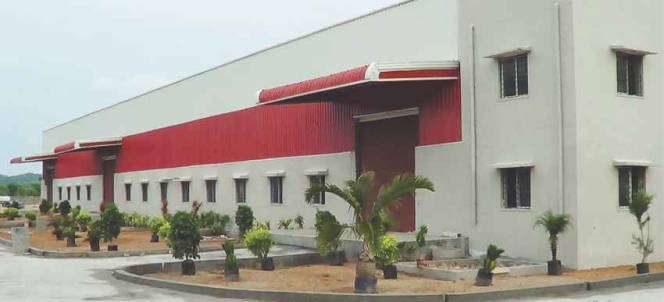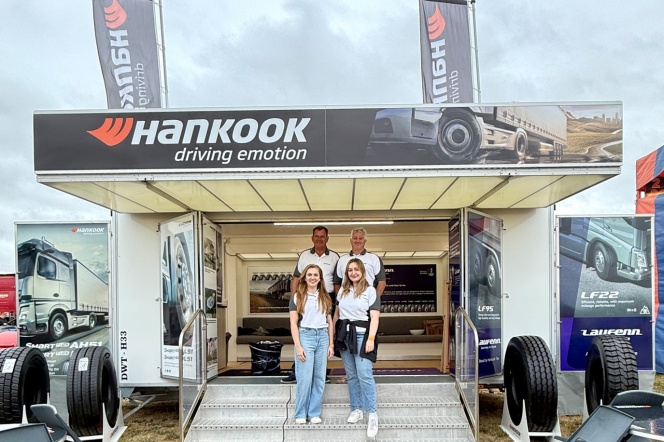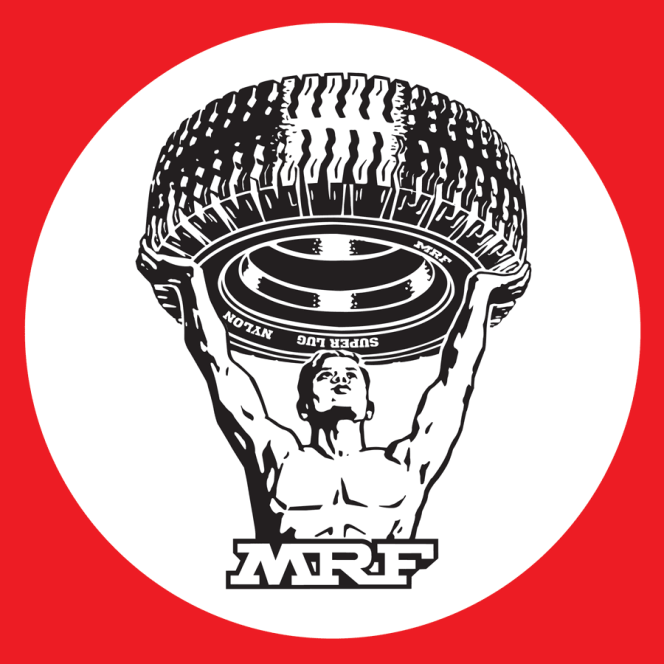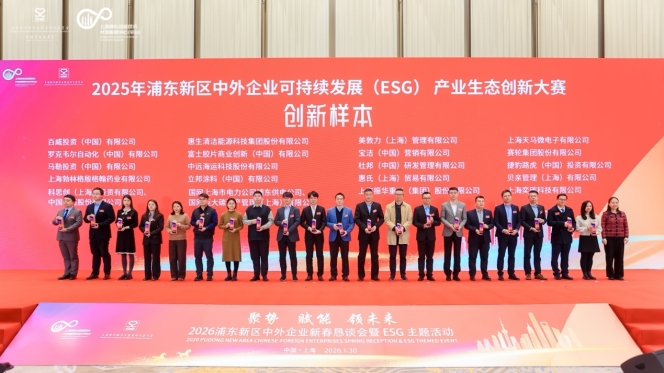Fortune Tire Tech opens new tyre retreading plant in Odisha, India
- By Sharad Matade & Gaurav Nandi
- June 16, 2021

 Speaking about the plant, Reddy said, “We planned to set up the plant in late 2018. Before the first wave of Coronavirus, we started off with construction, but our work was stalled due to the subsequent lockdown. Now the manufacturing unit has been fully constructed, but we can’t start operations due to Odisha being under lockdown. Once things normalise, we will start production.”
Speaking about the plant, Reddy said, “We planned to set up the plant in late 2018. Before the first wave of Coronavirus, we started off with construction, but our work was stalled due to the subsequent lockdown. Now the manufacturing unit has been fully constructed, but we can’t start operations due to Odisha being under lockdown. Once things normalise, we will start production.”
The plant is expected to have a monthly production of 500 units of 1200x24 size tyres used for Volvo truck-like vehicles.
The new plant will cater to the mining industry situated in Odisha. The company has already been serving the mining industry in the region for the last 24 years. “A lot of people from Andhra Pradesh are involved in the mining business in Odisha. We are taking indigenous machinery from Coimbatore, which will ensure an optimum cost for the tyres,” said Reddy.
The company’s customer base comprises VPR, BGR, Sainik Mining, etc. It has also started trade relations with Linde India. Fortune Tire Tech also plans to offer management services to its customers as well.
Fortune Tire Tech is the first-of-its-kind company in India to retread tubeless, radial and bias tyres, complying with European and American environmental standards.
The Odisha plant is equipped with the latest machinery imported from Germany and Italy. Fortune Tire is the first company in India to use shearography for retreading tyres. However, speaking on the viability in deploying modern machinery, Reddy explained, “Due to being a model plant, the investment for the plant is high. However, the plant is not viable for the Indian perception. But as a passionate retreader for the last 25 years, we have made the investment. The challenge is the Indian customers compare my product quality with roadside retreaders. Global retreading machinery leaders have also set up plants in the country, but unfortunately, could not succeed in this market so far. The people interested in investing in machinery get demoralised as the output cost is more than the local products. It is a problem for everyone.”
Commenting on the Indian government’s move to open its indigenous mining to private players, he said, “Retreading is famous in the mining industry across the globe—everyone banks on it. It is a key change in the tyre space. It is viable for everybody.”
Reddy has been in the retreading business since1995, but he started on a larger scale in 2012 with his first manufacturing plant in Hyderabad. “I was associated with Vamshi Rubber Limited since 1995 as a franchisee. That time we would roll out 800 units per month in Telangana. It was a small unit. I know the chairman of the firm very well. So, in one of our discussions, I placed the idea of a model plant in India. After that, we set on a tour of Europe and eventually, with the help of Mereddy Ramesh Reddy, chairman of Vamshi Rubber, we laid out our first plant in Hyderabad in 2012. After its success, we started our second plant in Singrauli, Madhya Pradesh, in 2016. And now we have set our eyes on Odisha. But due to the pandemic, there is a delay in commencing operations,” said Reddy.
Fortune Tire Tech’s Hyderabad plant has a capacity of 4,000 tyres, but it is rolling out 1,300-1,400 tyres per month in the lockdown. On the other hand, the MP plant produces 500 units per month, but currently, it is producing 250 tyres per month.
 Commenting on the retreading space in India, the veteran opined, “The market is outstanding, but the sector is unorganised. You cannot compete in an unorganised sector. Around 80 percent of the market is unorganised. We have appealed to the government to license players in this sector, but nothing has been done so far. Between 2016 and 2018, many Chinese tyres were imported into the Indian market which crunched to the tyre retreaders . But now, the current import duty has reduced the flow of Chinese tyres here. The government should show its support to the industry as we come under 18 percent GST slab. Due to this, transporters and other logistic support have to incur heavy losses. We appealed to the government through our association, but nothing came of it. We should come under the 5 percent GST slab.”
Commenting on the retreading space in India, the veteran opined, “The market is outstanding, but the sector is unorganised. You cannot compete in an unorganised sector. Around 80 percent of the market is unorganised. We have appealed to the government to license players in this sector, but nothing has been done so far. Between 2016 and 2018, many Chinese tyres were imported into the Indian market which crunched to the tyre retreaders . But now, the current import duty has reduced the flow of Chinese tyres here. The government should show its support to the industry as we come under 18 percent GST slab. Due to this, transporters and other logistic support have to incur heavy losses. We appealed to the government through our association, but nothing came of it. We should come under the 5 percent GST slab.”
According to Reddy, fleet owners mow are more concerned about maintaining their old tyres than buying new ones and looking for retreading tyres to reduce the cost per kilometre. “Chinese tyres are use and throw tyres and can be used temporarily. They are not viable in the long run, and retreading of these tyres is not viable. Major Indian tyre companies have come into the retreading space, but none of them, including the government, have perceived that this industry can be eco-friendly,” said Reddy.
Drawing a comparison on tyre retreading awareness between India and European countries, Reddy opined, “In European countries, every retreader has to have a licence and label their tyres. We have demanded the government to bring the same practices to India. Because once we have labelling on retreaded tyres, the unorganised sector will come to an end. But it is not happening in India.”
He concluded the conversation by saying, “We have no future plans yet. We are looking at the second Covid wave. Future prospect for the space is good, but we have to see how it unfolds after the pandemic and what effect does Coronavirus have on it.” (TT)
Hankook Confirms Partnership As Sponsor For Convoy Truck Shows 2026
- By TT News
- March 04, 2026

Hankook has confirmed its partnership for the 2026 Convoy Truck Shows, stepping in as an infield partner for the series, which runs in tandem with the British Truck Racing Championships (BTRC). These events offer a distinctive fusion of high-octane track action and the immersive atmosphere of a large-scale truck gathering. This renewed involvement deepens Hankook’s footprint at some of the most eagerly awaited dates on the UK motorsport and haulage calendar.
The season’s schedule commences with Convoy on the Plain on 16–17 May, followed by Convoy Cymru on 20–21 June. The flagship gathering, Convoy in the Park, will round off the summer season on 8–9 August. Attendees can look forward to a full agenda of British truck racing, breathtaking stunt performances, live entertainment and attractions for all ages, alongside a remarkable display of working vehicles, custom rigs and pristine show trucks. Mirroring its sponsorship of the Devon Truck Show, Hankook’s partnership with the Convoy series supports its wider mission to generate substantial donations for local charitable causes and community groups, positioning it as an event with purpose beyond spectacle.
At each of these shows, Hankook will spotlight its cutting-edge range of commercial and consumer tyres. Key exhibits will feature the SmartFlex AH51 for steer axles and the SmartFlex DH51 for drives, both engineered for long-haul and regional use and prized for superior traction and extended durability. Also on show will be the SmartFlex TH31 trailer tyre, the Vantra Transit summer tyre for commercial vans and several models from the Laufenn portfolio, such as the LZ22 all-weather drive tyre, the LF21 all-position tyre and the robust LF95 trailer tyre.
Rounding out the display are the Dynapro HP2 all-season SUV tyre and the iON evo SUV, a cutting-edge summer tyre purpose-built for electric vehicles, underlining Hankook’s forward-looking approach to sustainable mobility. Through its involvement in the Convoy Truck Shows, Hankook reinforces its dedication to the haulage industry by engaging directly with drivers, fleet operators and enthusiasts, showcasing tyre innovations focused on safety, efficiency and peak performance, all while actively contributing to valuable community initiatives.
Event Director Mike Quartley said, "We’re thrilled to have Hankook Tyre UK return as an official sponsor of the Convoy Truck Shows. After the success of last year’s collaboration, continuing the partnership was an easy decision for us. Hankook’s commitment to the industry and to our events adds real value across the board – from contributing to the scale and quality of the events to elevating the atmosphere and experience for our audience. We’re proud to be building on this relationship as the Convoy series continues to grow.”
- Tire Technology Expo 2026
- 2026 Tire Technology International Awards
- BioButterfly Project
- Twaron Next
- Lunar Airless Wheel
- Primacy 5 Energy
Tyre Industry Celebrates Innovation And Sustainability At 2026 Tire Technology International Awards
- By TT News
- March 04, 2026

The tyre industry gathered to honour outstanding innovation and individual accomplishment over the past year during the Tire Technology Expo 2026 held in Hannover. The Tire Technology International Awards, spanning 13 categories, recognised both technological progress and the commitment to a more sustainable future within the tyre sector. Organised by the Tire Technology International magazine, the winners were selected by an independent panel of journalists and technical experts.
Sustainability was a dominant theme, highlighted by three distinct environmental awards. Bridgestone received the award for tyre design innovation, celebrated for developing a truck tyre composed of 70 percent recycled and renewable materials, a notable industry milestone. In manufacturing, Continental was acknowledged for its significant strides in reducing freshwater consumption during production with the Environmental Achievement of the Year – Manufacturing award. The Environmental Achievement – Industry Contribution award went to the BioButterfly project, a collaborative effort involving Michelin, IFP Energies Nouvelles and Axens. This initiative was praised for creating bio-based butadiene from bioethanol, presenting a credible substitute for fossil fuel-derived materials and demonstrating strong potential for immediate industrial application.
Further technical achievements were recognised across several categories. Flexsys earned the Chemicals and Compounding Innovation of the Year award for developing the first practical alternative to the antioxidant 6PPD after extensive research. Teijin Aramid was honoured with the Materials Innovation of the Year award for industrialisation of its high-performance Twaron Next para-aramid fibre. A collaborative R&D breakthrough by Goodyear and TNO, which integrates tyre intelligence directly into a vehicle's automatic emergency braking systems to enhance safety, won the R&D Breakthrough of the Year award. In manufacturing equipment, Comerio Ercole’s advanced modular calendering line, Zeus, won the Tire Manufacturing Innovation of the Year award. Uzer Makina, a long-time finalist, was finally named Tyre Industry Supplier of the Year.
The event also celebrated conceptual and product excellence. Michelin had a particularly successful evening, first winning the Tire Concept of the Year award for its Lunar Airless Wheel, designed to withstand the extreme conditions on the moon. The company then claimed the highly anticipated Tire of the Year award for its Primacy 5 Energy, a tyre noted by the jury for achieving top EU label ratings in most sizes while offering improved longevity and reduced emissions compared to its predecessor. In the final major category, Continental was named Tire Manufacturer of the Year for the second consecutive year and the fifth time overall, following a review of the top manufacturers' yearly contributions.
The awards also highlighted personal achievements within the field. The Young Scientist Prize for 2026 was presented to Max Dixey, a PhD student at Queen Mary University of London, for his compelling presentation on the effects of carbon black activators. Finally, a Lifetime Achievement Award was bestowed upon Michelin’s Pascal Prost. A veteran engineer, researcher and long-time contributor to both the conference and the awards jury, Prost was celebrated by peers and colleagues for his enduring and significant impact on the tyre industry.
Matt Ross, Chairman of the awards and Editor-in-Chief of Tire Technology International, said, “As is now becoming the norm, this year’s awards were incredibly close. Continental and Michelin have picked up multiple awards and should be highly commended, but I’m also happy to see such an array of winners across the whole range of categories. The level of innovation on display across the tyre sector is staggering, and I hope that this year’s awards have captured even a hint of the groundbreaking work taking place to move this industry forward.”
On Frost’s achievement, Ross said, “For as long as I have worked on Tire Technology International and these awards, Pascal has been a valued contributor, a hugely appreciated advisor – and a wonderful sounding board. I would like to join with his peers and friends from across the industry in celebrating his phenomenal contribution to the tyre business.”
MRF Signs MoU With Tamil Nadu For Greenfield Plant At Sivaganga
- By TT News
- March 04, 2026

MRF has announced a significant move to expand its manufacturing footprint in southern India. The company revealed that it has signed a non-binding memorandum of understanding (MOU) with the Tamil Nadu Government, facilitated through the state’s nodal investment promotion agency, Guidance. This preliminary agreement outlines the company’s intent to establish a greenfield manufacturing unit dedicated to the production of automotive tyres and related ancillary products. The proposed facility is planned for location within the SIPCOT Industrial Park situated in the Sivaganga District of Tamil Nadu.
As the agreement is currently non-binding, its progression to a final commitment is contingent upon several conditions. These include the Tamil Nadu government’s sanction of a bespoke incentive package, the provision of necessary infrastructure, the allotment of land and the securing of all requisite statutory approvals in accordance with applicable state laws.
According to the official statement released by MRF, the project, upon receiving all clearances and moving forward, envisions a substantial capital outlay. The estimated investment for this venture is projected to be approximately INR 53 billion, with the capital expenditure to be phased over a 12-year period. Beyond the financial injection into the region’s economy, the initiative is also anticipated to be a major source of employment, with expectations of creating direct job opportunities for around 1,000 individuals.
- Sailun Group
- Sustainable Development (ESG) Industrial Ecosystem Innovation Competition
- Vale
- Mining Tyres
Sailun Group Honoured With ‘Innovative Model’ Award At Shanghai ESG Competition
- By TT News
- March 04, 2026

The second Sustainable Development (ESG) Industrial Ecosystem Innovation Competition for Chinese and Foreign Enterprises in Shanghai’s Pudong New Area recently concluded, with Sailun Group emerging as a distinguished honouree. Recognised for its collaborative ESG efforts with Vale, a global leader in metal and mining, Sailun received the prestigious ‘Innovative Model’ award, standing out as the sole tire company to achieve this recognition.
Organised jointly by the Shanghai Pudong Foreign-Invested Enterprises Association and the Shanghai Pudong Domestic-Funded Enterprises Association, the competition welcomed participation from companies registered and operating in the area, along with their partners. Invited by Vale Metals (Shanghai), Sailun took an active role by meticulously organising and presenting its innovative achievements in sustainable development. Through a structured application process highlighting solid practices and creative excellence, the company successfully secured the award.

Vale, one of the world’s foremost iron ore producers, maintains a longstanding strategic partnership with Sailun. Driven by a mutual dedication to sustainable supply chains, the two organisations have intensified collaboration, particularly in mining tyre supply. By integrating Sailun’s low-carbon tyre technologies, they inject environmental vitality into operations while enabling Vale to achieve refined efficiency through cutting-edge solutions. Their partnership exemplifies a synergistic model that harmonises efficiency, safety and low-carbon practices, serving as a standout case of ESG-driven empowerment across the industrial chain.







Comments (0)
ADD COMMENT